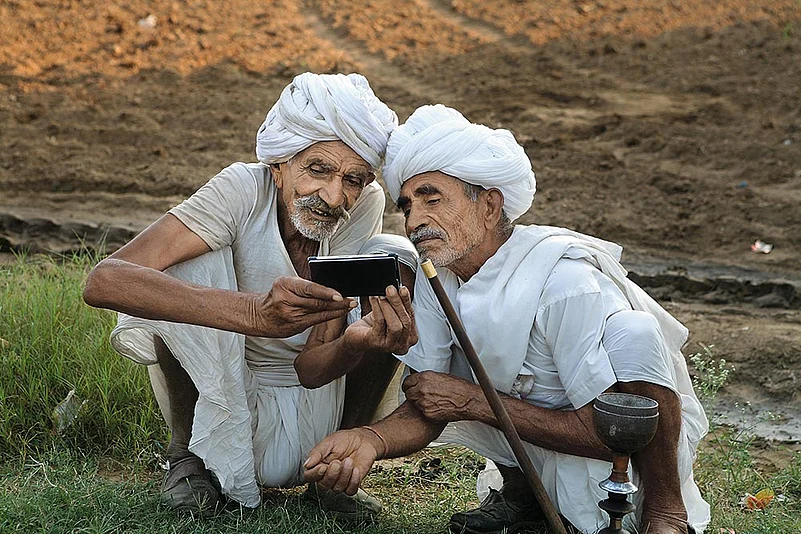The current model of economic growth has had serious consequences for the environment, such as climate change, pollution, water security, deforestation, ocean acidification and more frequent natural disasters. Growth has also been unequal. While the wealthiest people, the biggest companies and corporate leaders have unparalleled wealth, the poorest still struggle for food. Moreover, the Edelman Trust Barometer that measures consumers’ trust in companies has hit an all-time low. This seems surprising as we seem to be far more connected than at any other time in human history-—three-quarters of the world’s population uses mobile phones and about half has internet access. An estimated 21 billion dev-ices will be on the Internet of Things by 2020. With technological advances, knowledge can be a great advantage, but those who don’t have the ability to access it can be at a significant disadvantage. In the future, the internet will be everywhere. The digitally disadvantaged, either because of a disability, language issues or literacy may face hugely disproportionate challenges. There are also the challenges of partial information, fake news, search engines favouring certain types of results and so on. Partial, denied or incorrect access to information is giving rise to inequality and distrust.
CSR For The Digital Age
Bottomline isn’t enough as responsibility blurs the line between firms and society

We need a plan to include those who will be left out just as we need to quickly reverse the damage done to the environment. Governments and regulators the world over are mandating corporate disclosures on CSR and sustainability. Rules have been made to protect natural res-ources, clean up air and water, and a new Companies Act asks the corporate sector to invest 2 per cent of their net profits in certain areas as part of CSR. But these frameworks focusing on people and the planet don’t account for the main activity of tod-ay’s value creation the digital world rests on-—new business models around data, algorithms and digital disruption.
Data is the key competitive advantage for the 21st-century corporation. With more data available, everyone stands to gain from greater transparency, more convenience and better monitoring, but this also throws up the challenge of data privacy and data security. And data privacy has largely been ignored when it comes to corporate responsibility. We share information with social media companies, e-commerce portals, hospitals, banks, mobile companies and cars. A laissez faire approach to data responsibility is fraught with dangers because big data is powerful when aggregates are created and can predict, infer and enable many things. Hence, companies that aggregate data, third-party service providers and apps that breach security protocols need to be reined in. As large corporations know large parts of our lives and can potentially exercise significant control, it needs deep introspection. Data capture, aggregation and use are often highly secretive activities driven by opaque software processes and strengthened by legalese.
The sheer volume of information available has meant that humans are now beginning to rely more on machines for better decision-making. Often acc-used of being soulless, process-driven monoliths that transcend borders, today’s corporations will soon have algorithms at the helm of decision-making, with worrying implications. Heightened biases is a real possibility because algorithms increasingly learn on their own. The biases of the individual get reflected in the choices the algorithm may make—somewhat in the way the fashion industry of the 20th century perpetuated the myth of the perfect body type and led to body image issues for millions of young women, or the worrying tendency among Asians of wanting fair skin. Biases in books have also had significant impact. If similar biases were to be extended into algorithms, it can wreak havoc in people’s lives. We would all be dealing with agents and not humans. Where digital agents will help us through many things, imagine a digital security agent who is biased.
Many jobs are getting automated and, while technology may improve the quality of life in the long run, in the short term business models will see major disruptions. According to data scientists, there will be no jobs for radiologists in the next five years as algorithms will be able to analyse test reports better than humans. Imagine a student who passes out of medical school with a radiologist’s degree, but with a one-year career prospect! Leadership in this world where responsibility blurs the line between companies and society will be driven by a sense of right and wrong rather than a bottomline-focused approach. Responsibility in the 21st century needs redefinition.
(Business management consultant Namrata Rana is -author of BALANCE: Responsible Business for the Digital Age)
-
Previous Story
 Global Vaccine Research Collaborative Could Pave The Way For Faster Pandemic Response
Global Vaccine Research Collaborative Could Pave The Way For Faster Pandemic Response - Next Story


















